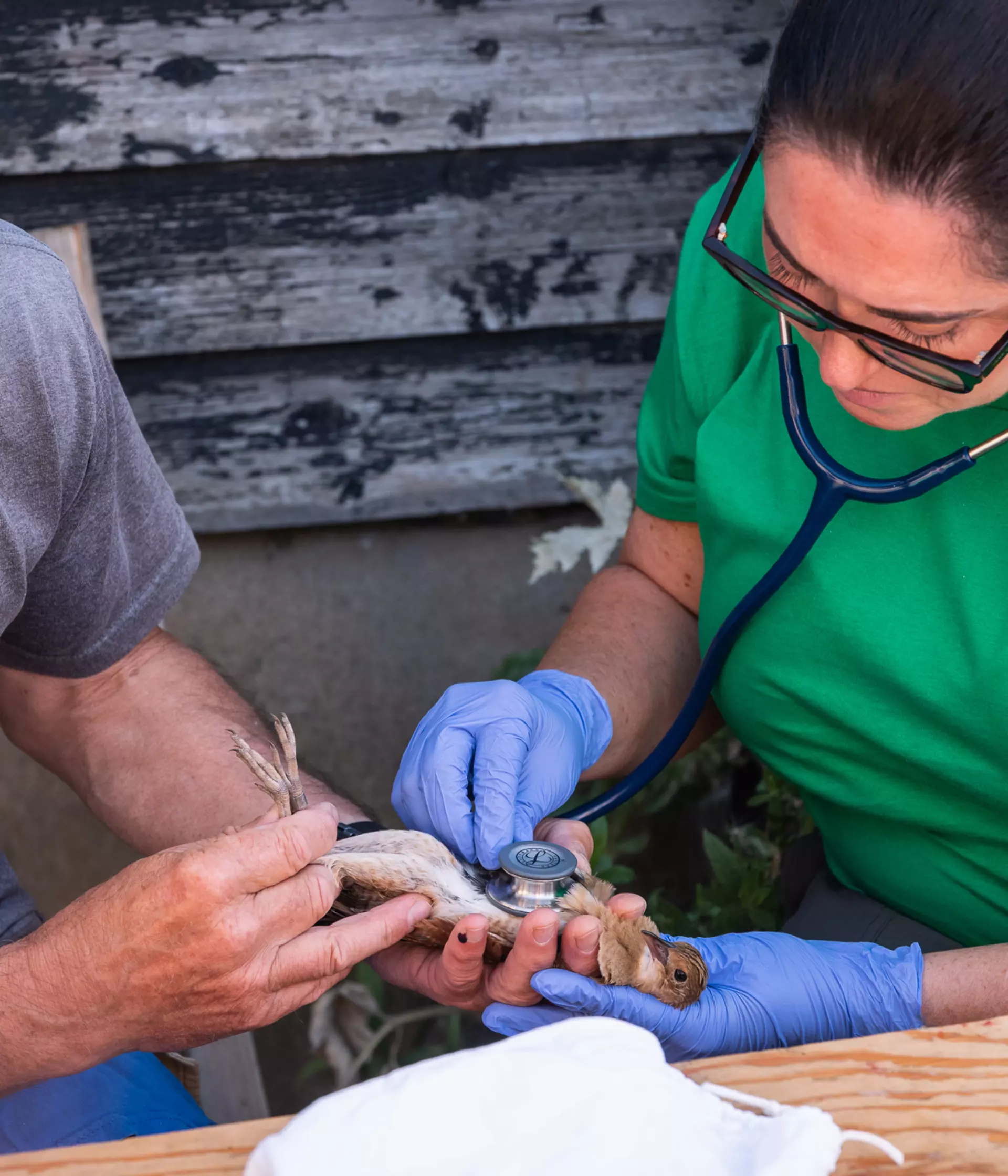ZSL’s Veterinary Department is at the heart of ZSL’s commitment to animal welfare and conservation.
Aspiring to achieve the highest standards of care, ZSL’s vet team provide both clinical and pathology services for London Zoo and Whipsnade Zoo as well as consulting on numerous scientific and conservation projects within and beyond ZSL.
London Zoo has employed veterinarians since its opening in 1828 as part of our commitment to animal welfare and the scientific understanding of animal health. The veterinary department currently consists of four staff veterinarians, two resident veterinarians, six registered veterinary nurses, a veterinary pathologist, a pathology associate and a microbiologist, spread across two veterinary hospitals at London and Whipsnade Zoos. Together, the veterinary team are responsible for the health of over 20,000 animals, ranging from corals, snails and fish to Komodo dragons, ostriches and elephants.
ZSL’s veterinarians are all experts in the care of wildlife and include diplomates of the American and European Colleges of Zoological Medicine (ACZM and ECZM). Veterinary care ranges from preventative medicine to emergency interventions. When animals arrive in our zoos they will undergo a period of quarantine and testing to ensure no harmful pathogens are introduced. The animals will then receive regular health checks over the course of their lives to ensure that any potential illness is recognised and treated early. Animals with chronic health conditions, such as arthritis or diabetes, will be receive extra attention to ensure that these conditions are managed and the animals do not suffer. On-site care is provided 365 days a year to ensure that animals can rely on prompt treatment in case of emergencies.
The pathology team
The pathology team include veterinarians and scientists with specialist qualifications in histopathology and microbiology. On-site microbiology and parasitology provision means that infectious disease can be quickly diagnosed and treated, while full gross and microscopic post-mortem examinations of every animal ensure that even the most subtle conditions are recognised.
The veterinary department
The veterinary department shares its knowledge with the wider veterinary and zoological communities through conference presentations and scientific publications, as well as through academic teaching. Together with the Royal Veterinary College, we offer training in wildlife health through our residency programme in Zoo Health Management and MSc courses in Wild Animal Health and Wild Animal Biology. The veterinary department also maintains an archive of records and samples relative to wildlife disease, stretching back nearly 200 years.
Related courses
MSc in Wild Animal Health
Since its inception in 1994 this world-class specialist Masters course has produced hundreds of graduates, originating from dozens of countries.
MSc in Wild Animal Biology
Wild animal health has become increasingly popular among non-veterinarians with an undergraduate degree in zoology and biology.
